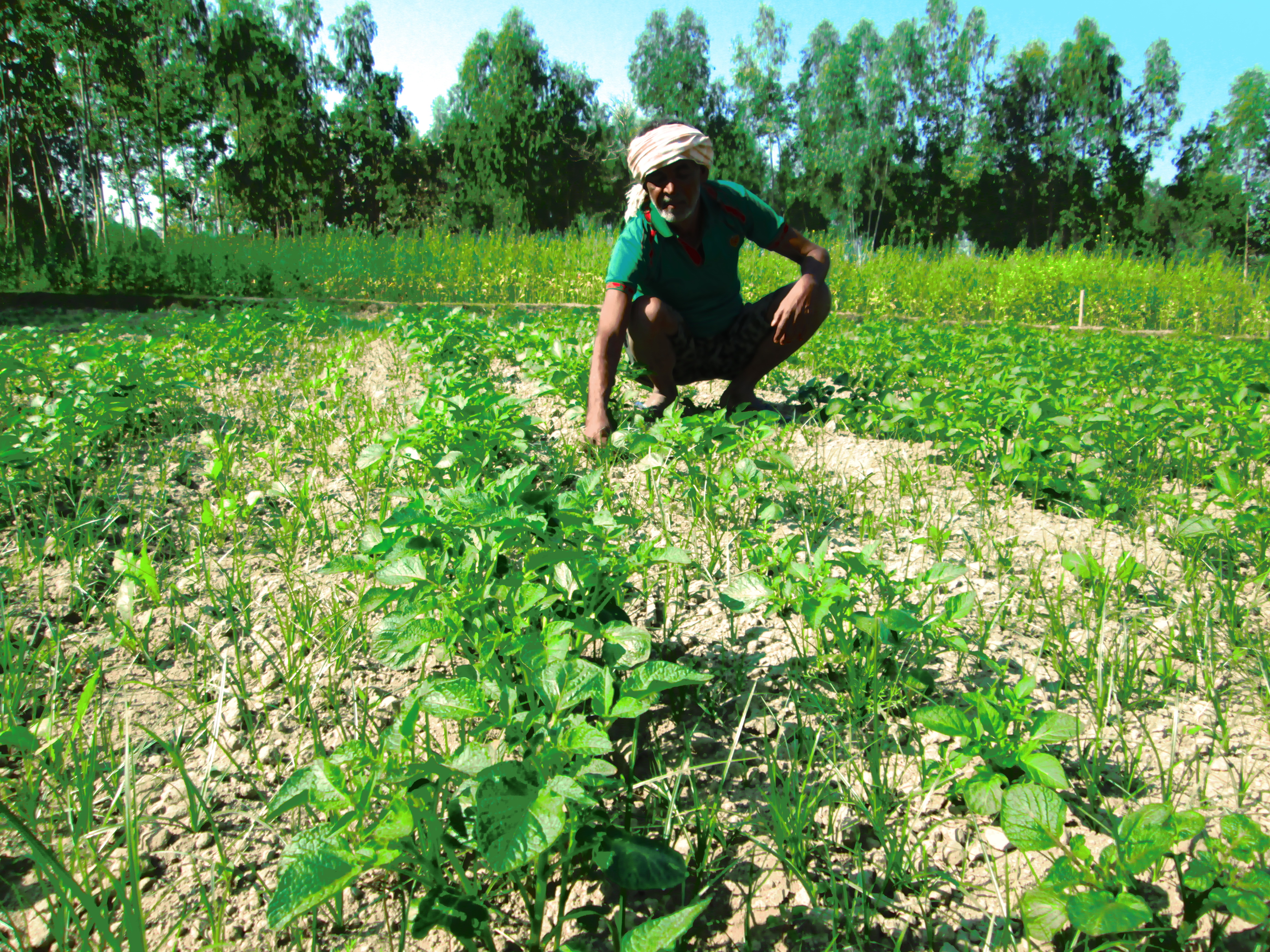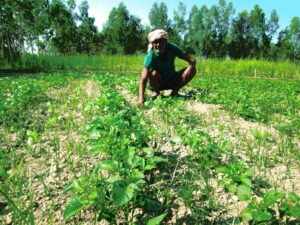
13 Sep RESILIENT LIVELIHOOD
 SUS integrates the livelihood component into most of its development programme/project, as the rural households with whom it works include the resource-poor. Viewed from this perspective, improving their livelihood becomes an important action for SUS to help them move out of poverty. SUS experience has shown that the integration of livelihood component provides low-income households with an opportunity to earn living through their genuine participation in farm or non-farm economic activities in a sustainable way. SUS organizes and mobilizes communities for generating financial capital and social networking. It promotes low cost, climate-resilient, and market-oriented farm productions, and facilitates the target groups for small and micro enterprises development. Its initiatives to promote coordination and partnership with local stakeholders for market linkage and economic infrastructures helps bring multiplier effects.
SUS integrates the livelihood component into most of its development programme/project, as the rural households with whom it works include the resource-poor. Viewed from this perspective, improving their livelihood becomes an important action for SUS to help them move out of poverty. SUS experience has shown that the integration of livelihood component provides low-income households with an opportunity to earn living through their genuine participation in farm or non-farm economic activities in a sustainable way. SUS organizes and mobilizes communities for generating financial capital and social networking. It promotes low cost, climate-resilient, and market-oriented farm productions, and facilitates the target groups for small and micro enterprises development. Its initiatives to promote coordination and partnership with local stakeholders for market linkage and economic infrastructures helps bring multiplier effects.
Strategic Objective/outcome-1: Strengthen economic empowerment through resilient livelihood of targeted groups (Dalits, women, and other vulnerable groups).
Sub-priorities: 1) On farm livelihood options 2) Off farm livelihood options (enterprise) 3) Skills development for employment and self-employment.
Program Outcome indicators:
- % Of targeted groups increase their income by additional 20% annually
- % Of target groups improve capacity for coping economic and social risks and shocks through resilient livelihood models
- # Of farmers participate meaningfully in decision making processes and structures of local governments for their economic and social empowerment
Major Interventions:
- Access to productive resources:
- Awareness on govt and non govt policies and programs
- Access to inputs/resources (inputs, credit, technology, training/ TVET/extension services, market, insurance, linkages)
- Capacity building of target groups on technology transfer
- Policy/budget analysis and advocacy initiatives
- Strategic advocacy to access govt and non-govt economic means and resources
- Public-Private Partnerships dialogues for enterprise development and skills for employment
- Meaningful participations in decision making for economic rights/empowerment
- Policies and guidelines review and advocacy for making/reform of policies for meaningful participation and economic inclusion of target groups
- Participation of Target Groups and CBOs in 7 steps planning processes and govt formed local development users’ groups.
- Capacity building of target groups on govt policy making, planning, and implementation process, 7 steps planning process, users’ groups capacity development and governance
- Creating Resilient Livelihood Models:
- SHGs/farmer groups strengthening and mobilization
- Strengthening CBOs and cooperatives as a model of social enterprise
- Sub-sector analysis/study for climate smart agriculture/ livestock /enterprises
- Promotion and replication of Climate Smart Agriculture/livestock/Enterprise development (business planning skills, inputs support, production, market linkage in collaboration with private sector actors)
- Promotion of demonstration farms/enterprise including farmers’ climate field school
- Promote innovative models such as agro-tourism/farm stay, community service and resource center for one-stop shop for agriculture/enterprise services
- Skills Development for Self/Employment:
- Research and study on market based/viable skills development
- Career counselling on market aligned skill development and job placement
- Facilitate and/linkage to TVET programs with govt and private sector
- Provide start-up support for self-employment businesses

